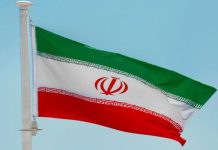Web Desk
TEHRAN, APR 27 – President Masoud Pezeshkian will head to Baku on Monday for an official visit at the invitation of his Azerbaijani counterpart Ilham Aliyev, opening a new chapter of expanding cooperation between two brotherly countries with deep historical ties.
The trip, taking place in line with Iran’s efforts in recent years to revive relations between the two countries, is by far the most important hallmark of the Pezeshkian administration’s neighborhood policy.
Iran’s neighborhood policy, a legacy of late President Ebrahim Raeisi, is motivated by the overarching objective of creating a new regional order where countries make sovereign choices in their partnerships, rather than aligning with any one major power.
Efforts at improving Iran’s relations with its neighbors are not new, having featured prominently in the administrations of former presidents. However, it was during President Raeisi that Iran adopted the good neighbor policy as a formal doctrine.
This deliberate pursuit of good relations with neighboring states bore significant results, most importantly with Saudi Arabia which is key to relations with the rest of the Arab world, given its financial prowess and stature as the custodian of the birthplace of Islam.
On a poignant note, President Raeisi’s last moments were the highlight of his staunch dedication to the new proactive doctrine of good neighborly relations, and his complementary “Look East” policy.
The former president was killed in May 2024 after inaugurating two joint dams and a joint hydroelectric power project with Azerbaijan on the Aras river.
He was joined at the ceremony by President Aliyev, who said he had bid a “friendly farewell” before the helicopter Raeisi and seven other people were travelling in departed the dam area and crashed in a mountainous region amid poor weather conditions on the way to the city of Tabriz.
The visit by Pezeshkian, ethnically an Iranian Azerbaijani on both paternal and maternal lines, to Baku comes after his high-profile trips to Turkmenistan and Tajikistan, and previously Iraq, reflecting his administration’s commitment to the new architecture in regional and neighborhood relations.
Under this policy, the Islamic Republic has always adhered to the principle of advancing its relations with its neighbors based on common interests and free from influence from third parties.
As regards Azerbaijan, Iran’s foreign policy is anchored by the principles of rationality, respect for the territorial integrity of the former Soviet nation, and support for lasting peace in the South Caucasus – a fault zone between East and West.
After the Soviet Union’s collapse, Iran recognized Azerbaijan’s independence in 1991, and was among the first countries to establish diplomatic relations and open its embassy in Baku.
Diplomatic relations have run hot and cold for years, but they have always enjoyed a rich foundation of historical and cultural commonalities. In addition to geographical proximity, Iran and Azerbaijan have deep kinship affinities, which transcend official relations between governments.
Pezhakian’s visit to Baku is a strong underpinning of the fact that the two neighbors, with long borders and historical kinship, are bound to set their relationship on a more stable, predictable and constructive trajectory with consistent reinforcement and high-level engagement.

















